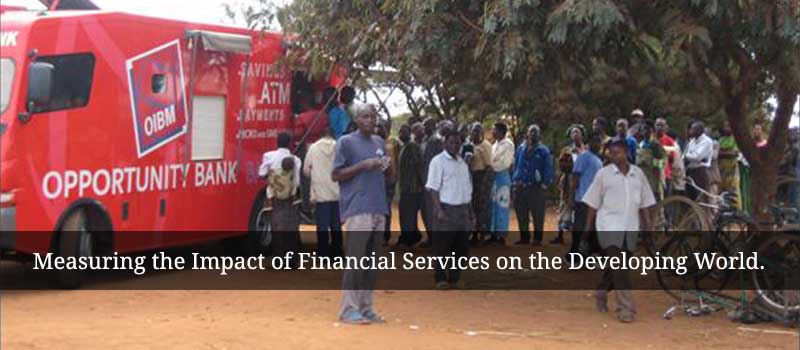Convenience Reconsidered: Some Findings on Formal vs Informal Financial Services from the Financial Diaries
From agent banking to mobile phones to point-of-sale devices, innovations in branchless banking — the delivery of banking services through means other than fixed bricks-and-mortar locations have attempted to bring formal financial service into low-income, underserved communities. Rather than making the customer go to the bank (a process which in many developing countries entails significant travel time and monetary expense), branchless solutions essentially bring the bank to the customer.
In a word, the value proposition of branchless banking is convenience. As articulated by scholars over the past decade or so (notably by Morduch & Rutherford, 2003), convenience for microfinance clients has multiple dimensions. It includes not just geographic proximity but also flexibility (e.g., of product terms and conditions) and ease of use (e.g., hours of operation, administrative requirements).
Microfinance Opportunities (MFO) recently completed a two-year, largescale research project among hundreds of low-income households in Central Malawi. A key focus of the study was a branchless banking innovation that had been piloted in 2007 by Opportunity International Bank of Malawi (OIBM). OIBM's mobile banking van, launched with start-up funding from the Bill & Melinda Gates Foundation, functions as a hightech bank-on-wheels, with both an ATM and a human teller on board. The van travels a regular schedule of stops among communities underserved by the banking sector, providing a full range of financial services.
OIBM's particular focus was the delivery of savings services. For the local population (as for poor people all over the world), storing cash at home or on one's person is standard practice. But cash stored informally, which the MFO study authors loosely termed "mattress money," is of course vulnerable to theft. In addition, mattress money's accessibility, the very thing that makes it so convenient, also presents chronic temptation to unwise spending. The idea was that the van, by delivering banking services closer to people's doorsteps, would benefit the study population by transitioning people away from reliance on informal finance and towards safer, higher-quality formal banking.
MFO's study suggests that the van did advance the goal of introducing formal financial services to first-time customers, albeit on a modest scale. The study also found that the convenience factor was especially important for women. But while the van may have been convenient by comparison to a fixed branch location, when compared to the extreme convenience of informal alternatives (mattress money, spot loans from friends), the van operated at a disadvantage.




